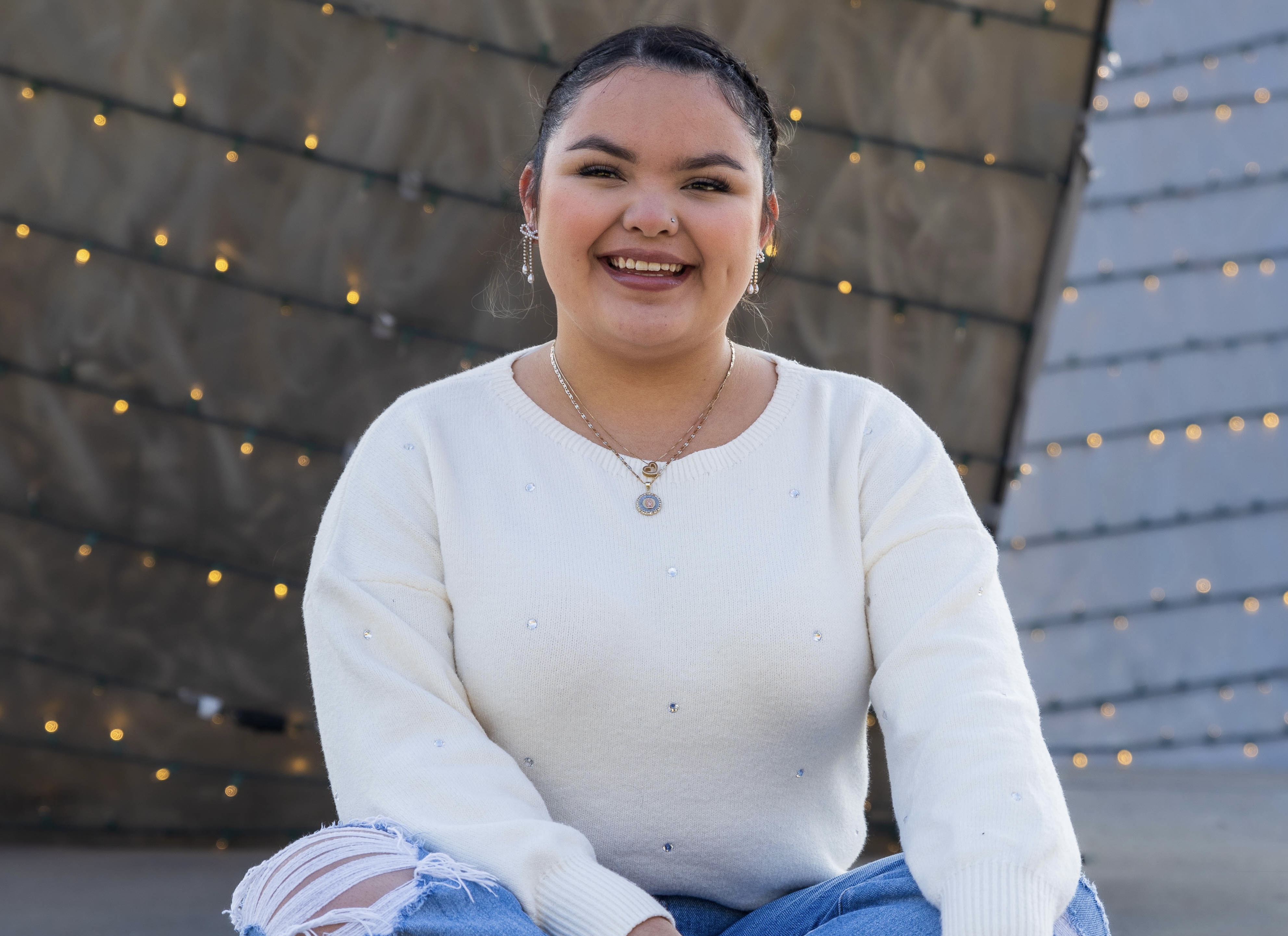
Ashley Alvarado-Barragan (she/her/ella)
Undergraduate Student, Student Assistant, First-Gen, Latina
I am a 21-year-old first-generation Latina, a proud Mexican-America woman, and the eldest and only daughter. I am a sister to two younger brothers who will never have to navigate upper-education school systems alone.
Q: What does equity, diversity, inclusion and belonging mean to you?
A: To me, equity, diversity, inclusion, and belonging mean feeling seen and respected, and ensuring the same for others. It's about offering and giving others the space to succeed while being granted that same space to thrive.
Q: When did you first have an understanding that you had different identities from others in your life?
A: My first understanding that I had a different idenity from others came from living a double life, balancing my life at home and outside. As the oldest daughter, I faced many cultural expectations and took on a parentified role. Outside of home, I sought validation by excelling in school and going above and beyong to feel seen and acknowledged. This duality made me acutely aware of my unique position and the different facets of my identity.
Q: How much were you able to bring your true, authentic self to campus each day? Or, during your time as a student, to what extent did you feel you coule be fully yourself on campus?
A: During my freshman year, I struggled with imposter syndrome and homesickness, often feeling the need to head home regulary without fully processing my emotions. However, after joining clubs and organizations like Phi Alpha Delta, and surrounding myself with like-minded people who were in the same shoes as me, I felt a warm sense of community and belonging. This newfound support allowed me to bring my true, authentic self to campus each day. I made it my mission to welcome new students on campus, wheather during move-in day or by taking on roles in my fraternity, such a recruitment chair, to help others build connections and explore all the opporunities offered on campus.
Q: How you would improve inclusivity and belonging on campus? Or, how have you seen inclusivity and belonging on campus evolve since you were a UC Merced student?
A: I've been fortuate to see UC Merced evolve into what it is today. My aunt and unlce, alumni of the class of 2008 and 2009, experienced a campus that was just a fraction of its current size. Watching my aunt graduate and hearing the marachi greet all the new graduates, alongside moments like seeing First Lady Michelle Obama give the commencement speecg, made me feel seen and recognized through my culture and my aunt's accomplishments. She taught me a valuable lesson: you only get as much as you put in. So, it's essential to network on campus, attend events, and make college an experience worth your time. To further improve inclusivity and belonging, I would advocate for more culture events and support programs that celebrate diversity and create spaces for students from different backgrouns to share their experiences.
Q: How can we make a stronger commitment to ensuring that people of all identities feel welcomes, included, and that they truly belong?
A: I feel like many people lose sight of empathy and compassion when they're focused on passing classes, keeping up with school, and managing jobs. It's important to remember that it's everyone's first time living. A simple smile can make someone's day and help them feel welcomed. We should always remember to say "please" and "thank you" to our professors and staff around campus. These small gestures can create

